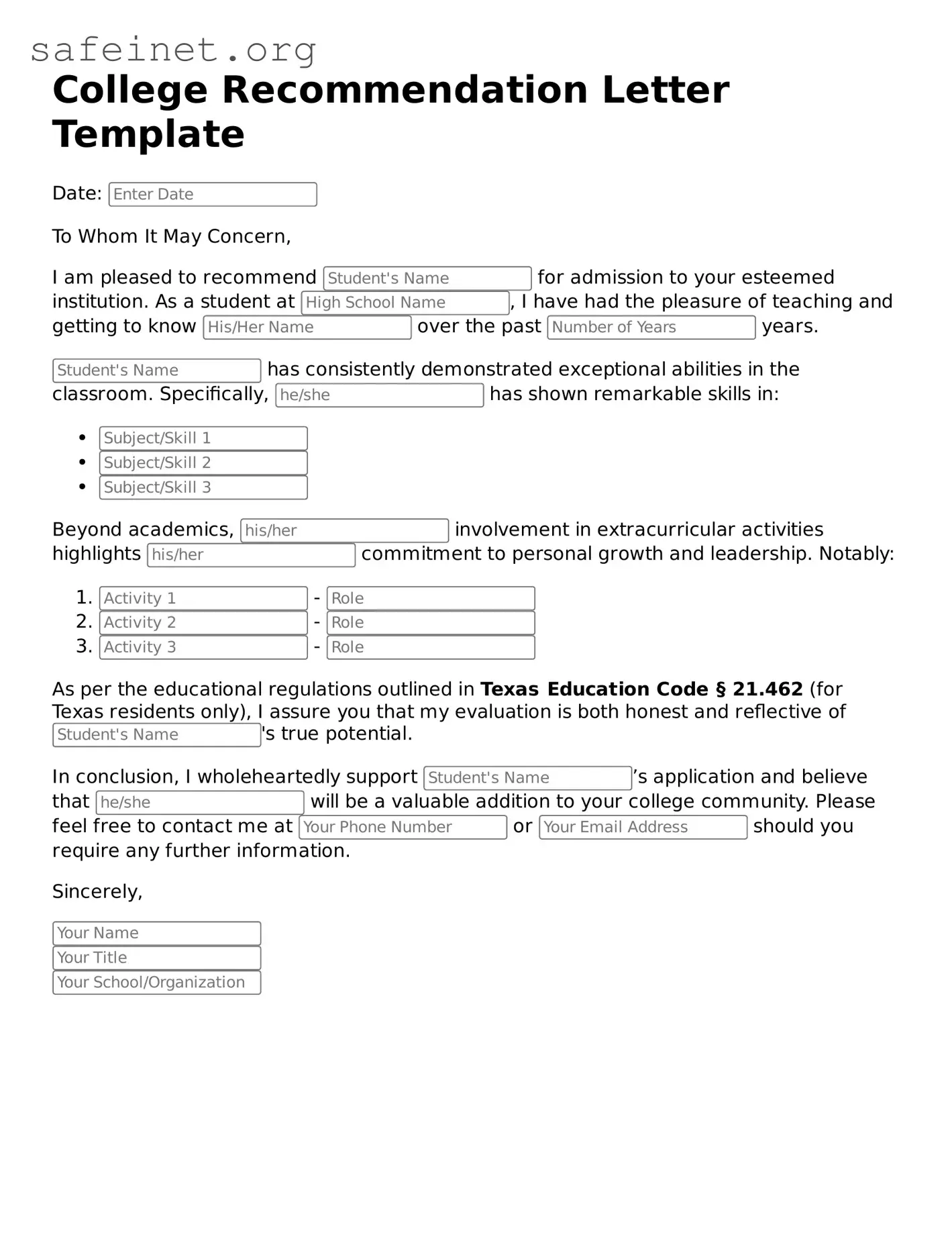What is a College Recommendation Letter?
A College Recommendation Letter is a document written by a teacher, counselor, or another mentor that provides insights into a student's character, academic abilities, and potential for success in college. This letter helps admission committees understand more about the applicant beyond test scores and grades.
Who should write my College Recommendation Letter?
Typically, a teacher or guidance counselor who knows you well and can speak positively about your academic performance and personal qualities should write your recommendation letter. If you have participated in extracurricular activities, consider asking a coach or club advisor.
How many recommendation letters do I need?
The number of recommendation letters required varies by college. Most institutions ask for one or two letters. Check each college's requirements carefully to ensure you submit the appropriate number.
How do I request a recommendation letter?
When requesting a recommendation letter, be polite and give ample notice. Approach the person in person or send a formal email. Be sure to provide relevant information, such as your resume, deadlines, and details about the college or program.
What information should I provide to the person writing my letter?
Provide context about your goals, interests, and any specific achievements or experiences you would like highlighted. Include your academic resume, details about the colleges you're applying to, and any relevant deadlines.
Can I read my College Recommendation Letter?
Generally, you cannot read your letter unless the writer allows it. Many colleges require letters to be confidential. If you wish to read the letter, discuss this with the writer first to respect their privacy and comfort level.
What if my recommender misses the deadline?
If your recommender misses the deadline, contact them politely to remind them of the due date. Make sure they have all necessary information. If the situation cannot be resolved, consider asking someone else for a recommendation.
Can I submit my recommendation letters electronically?
Most colleges allow for electronic submissions of recommendation letters. Follow each college's specific instructions on how to submit your letters, as some might require online forms while others may accept emailed versions.
